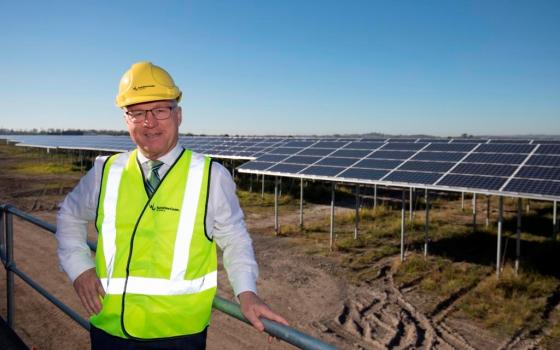
Public health professionals welcome a state plan addressing the health impacts of climate change, but say national action is ‘urgently needed.’
The Queensland Government’s new Human Health and Wellbeing Climate Change Adaption Plan provides guidance to health, aged care and childcare services on ways to manage the threats that climate changes poses to human health through extreme weather, drought and increased disease outbreaks.
Consultation with various stakeholders to inform the plan revealed concern among health professionals about the “policy gap” in the area.
The Public Health Association of Australia says that Queensland’s plan is an example of the type of climate and health strategy “that is currently lacking in Australia at the national level.”
“The reality is we’re already beginning to experience some of the health impacts of climate change,” said the association’s Dr Peter Tait.
“It is critical we act now to start addressing these issues, and the states and territories should be supported at the federal policy level to do so,” he said.
The Queensland plan notes that the Federal Government “does not yet have a policy to address the health risks of climate.”
Health services ‘not well prepared’
The state plan says that climate change is leading to more intense and frequent extreme events such as heatwaves, storms and floods, which affect human health in a variety of ways.
Many health and wellbeing services are not well prepared to adapt to climate change or respond to the health impacts, it says.
“A recent study of hospital resilience to extreme weather events found hospital disaster planning was ad hoc and non-inclusive,” it notes.
While there is some climate adaption activity occurring in the form of disaster and emergency management, the plan says that “in the face of expected impacts, there is a need to scale up adaption in the sector.”
Early childhood and aged care stakeholders indicated a lack of organisation engagement in climate change risk appraisal or management, it said.
Concerns highlighted
A survey of health, aged care and early childhood professionals, conducted to inform the new plan, highlighted their key concerns as including:
- increasing pressure on services from climate impacts (e.g. groups displaced)
- damage to infrastructure
- a lack of leadership at the senior level to manage risks
- absence of policy, regulation or guidance for climate adaption
- lack of finance and resources to build capacity for adaption.
The survey also found that the most common physical and mental health impacts of concern were:
- heat stress (80 per cent)
- changes in patterns of infectious disease (72 per cent)
- death and injury from extreme events (70 per cent)
- mental health issues (67 per cent).
Regional workshops with stakeholders also noted the mental health impacts of extreme weather, including the severe effects on Queensland farmers of repeated crop and livestock losses.
Priority measures
The plan puts forward 10 priority adaption measures, together with a set of guiding principles, to provide “high-level guidance” for services, professionals and policymakers.
The measures cover leadership and governance, building preparedness, research and data, collaboration across agencies, and infrastructure and technology.
The document also contains case study examples of possible responses at the service, system and government levels.
Dr Tait said the Queensland plan was a “clear strategy” to implement public health measures to response to climate change.
“This is the direction in which any discussions on national climate policy should be heading,” he said.
The Queensland plan, which was developed by the National Climate Change Adaption Research Facility and the Climate and Health Alliance for the State Government, is available here.
Comment below to have your say on this story.
If you have a news story or tip-off, get in touch at editorial@governmentnews.com.au.
Sign up to the Government News newsletter.



